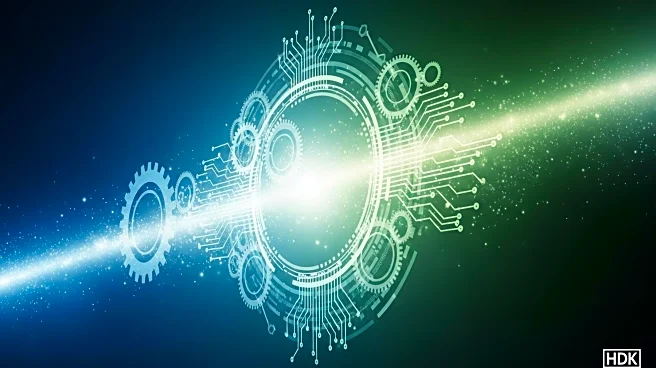What's Happening?
Generative artificial intelligence (AI) is significantly altering the landscape of tech roles across the United States. According to a report from Indeed, 37% of tech professionals surveyed indicated that their roles have been redefined or restructured due to the integration of generative AI tools. The report highlights that 52% of tech workers have been reassigned, and 26% have faced layoffs as a result of AI adoption. The tech labor market is experiencing a shift, with AI accelerating changes in demand and role definitions. Entry-level candidates are encountering increased barriers, while there is a shortage of experienced specialists for certain roles. Additionally, a report from Resume.org reveals that nearly 30% of companies have already replaced jobs with AI, and 37% plan to do so by the end of 2026. High-salary employees, those lacking AI skills, and entry-level workers are at the highest risk of layoffs.
Why It's Important?
The integration of generative AI into the tech industry is reshaping employment dynamics, with significant implications for the workforce. As AI tools become more prevalent, companies are restructuring roles, leading to job reassignments and layoffs. This trend poses challenges for tech workers, particularly those in entry-level positions or lacking AI skills, as they face increased job insecurity. The demand for experienced specialists highlights a skills gap that could hinder AI adoption if not addressed. Furthermore, the shift in employment dynamics underscores the need for upskilling and training programs to equip workers with the necessary skills to thrive in an AI-driven environment. The broader impact on the U.S. economy includes potential shifts in job markets, wage structures, and the need for policy adjustments to support affected workers.
What's Next?
As AI continues to influence the tech industry, companies may need to invest in training and development programs to bridge the skills gap and support workforce adaptation. Policymakers might consider implementing measures to protect workers from the adverse effects of AI-driven job displacement. Additionally, businesses could explore strategies to integrate AI in a way that complements human skills, rather than replacing them, to foster a more sustainable employment landscape. The ongoing evolution of AI technology will likely prompt further discussions on ethical considerations, regulatory frameworks, and the role of AI in shaping the future of work.
Beyond the Headlines
The rise of generative AI raises ethical and cultural questions about the future of work and the role of technology in society. As AI tools become more integrated into the workplace, there is a need to address concerns about privacy, data security, and the potential for bias in AI algorithms. The cultural shift towards AI-driven processes may also impact workplace dynamics, requiring organizations to foster environments that support collaboration between humans and machines. Long-term, the adoption of AI could lead to a reevaluation of traditional employment models and the development of new career paths that leverage AI capabilities.









